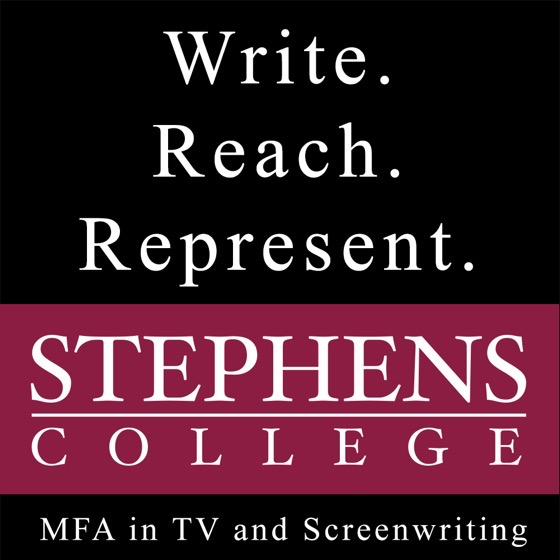Watch the entire presentation – Worry and Wonder | The Courier Thirteen Podcast | Episode # 29 here
Transcript:
Host: This might be a really sad thing to say, but do you think that, sometimes, it’s not always the best writers who get their pitches up but it’s the people who can work the room, by either maneuvering around, can get their stuff into the ears of the right people and then present that?
Rosanne: That is very true. I wouldn’t say — I mean you have to be a good writer to get in the room in the first place or they wouldn’t have hired you across all those stacks — you’ve seen all the things you’ve read for —
Host: Yeah. No. There’s a lot of crap to filter through. Absolutely.
Rosanne: Absolutely. So, generally speaking, you had to be a certain level to get in the room, but, yeah, it’s the people who can work — you have to work both things. A friend of mine is fond of saying, “It’s called show business. not show art.” So business is half of the job.
It’s always fun to sit down with students and share stories about entering the television industry and how things work at all stages and I had that opportunity the other day.
Daniela Torres, a just-graduated (Congratulations!) student of the Columbia College Semester in LA program asked me to guest on a podcast she had recently begun hosting with another college student she met during her internship (good example of networking in action!).
We could have talked all morning (the benefit of a 3 hour class session) but we held it to about an hour and fifteen minutes or so. Hopefully, along the way I answered some questions you might have about how the business works. So often it amounts to working hard at being a better writer and gathering a group of other talented, hard-working people around you so you can all rise together.
Dr. Rosanne Welch is a television writer with credits that include Beverly Hills 90210, Picket Fences, ABCNEWS: Nightline and Touched by an Angel. She also teaches Television Writing and the Art of Film at San Jose State University.
Rosanne discusses what made shows like Beverly Hills 90210 compelling, what to do and not to do when attempting to pitch a show to broadcast or streaming, what most young writers neglect in their writing process, and much more!
The Courier Thirteen Podcast is available on YouTube, Spotify, Apple Podcasts, SoundCloud, and Audible.
Podcast: Play in new window | Download
Subscribe: RSS
![07 It’s Show Business…Not Show Art…from Worry and Wonder | The Courier Thirteen Podcast | Episode # 29 [Video]](https://rosannewelch.com/wp-content/uploads/2021/07/rmw-courier-13-07.jpg)


![06 How To Pitch To A Showrunner…from Worry and Wonder | The Courier Thirteen Podcast | Episode # 29 [Video]](https://rosannewelch.com/wp-content/uploads/2021/07/rmw-courier-13-06.jpg)
![05 Working The Room…from Worry and Wonder | The Courier Thirteen Podcast | Episode # 29 [Video]](https://rosannewelch.com/wp-content/uploads/2021/07/rmw-courier-13-05.jpg)
![04 What The Show Is from Worry and Wonder | The Courier Thirteen Podcast | Episode # 29 [Video]](https://rosannewelch.com/wp-content/uploads/2021/06/rmw-courier-13-04.jpg)
![03 Inside The Writer’s Room Part 2 from Worry and Wonder | The Courier Thirteen Podcast | Episode # 29 [Video]](https://rosannewelch.com/wp-content/uploads/2021/06/rmw-courier-13-03.jpg)
![02 Inside The Writer’s Room from Worry and Wonder | The Courier Thirteen Podcast | Episode # 29 [Video]](https://rosannewelch.com/wp-content/uploads/2021/06/rmw-courier-13-02-inside.jpg)
![01 On Giving Notes from Worry and Wonder | The Courier Thirteen Podcast | Episode # 29 [Video]](https://rosannewelch.com/wp-content/uploads/2021/06/rmw-courier-13-01-notes.jpg)
![Dr. Rosanne Welch Talks Worry and Wonder in Screenwriting on the Courier 13 Podcast [Audio] [Video]](https://rosannewelch.com/wp-content/uploads/2021/04/RMW-Rosanne-Signature-for-Web.png)
![Dr. Rosanne Welch Talks Worry and Wonder in Screenwriting on the Courier 13 Podcast [Audio] [Video]](https://rosannewelch.com/wp-content/uploads/2021/06/courier-13-rmw.jpg)

